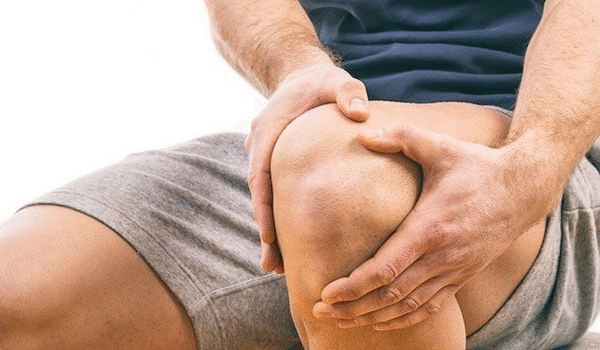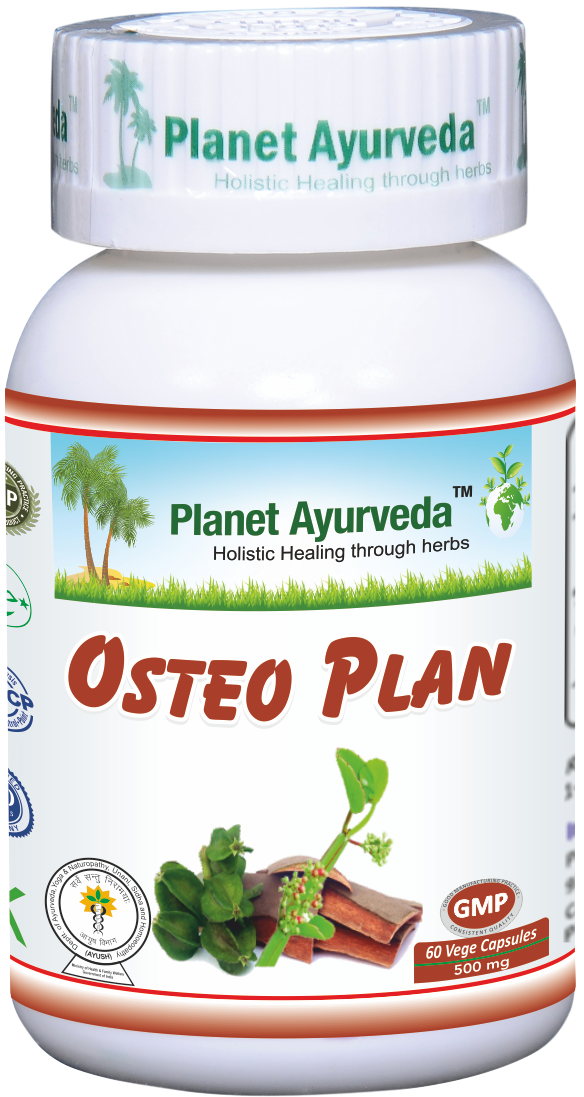Planet Ayurveda Agnitundi Vati – Ayurvedic Medicine for Strong Digestion & Metabolism
ABSTRACT
In the present era, digestive disorders such as Agnimandya (a weakened digestive fire) are prevalent across all age groups, resulting from impaired digestive fire (Agni) that leads to toxin accumulation (Ama) and complications like fever associated with indigestion (Amajvara). Ayurveda attributes these to Vata and Kapha dosha aggravation with channel obstruction and metabolic disturbances. Agnitundi Vati, a classical herbo-mineral formulation, features Ushna (hot potency), Tikshna (penetrating action), Lekhana (scraping), and Deepana (appetizer) properties to effectively balance both doshas, kindle digestive fire, and eliminate Ama (endotoxins). It comprises equal proportions of purified minerals, alkaline ashes, salts, and select herbs triturated with citrus fruit juice for enhanced efficacy. A detailed overview of this formulation follows.
INTRODUCTION
Agnitundi Vati is a potent herbo-mineral formulation renowned for igniting digestive fire and alleviating agnimandya (weak digestion) along with its complications. The name “Agnitundi” signifies its thunderbolt-like (tundi) action on Agni (fire), combining purified mercury, sulfur, aconite, alkaline ashes, salts, borax, and select herbs triturated in lemon juice for profound ama endotoxins clearance and vitality restoration. Primarily indicated for weak digestion, bloating, indigestion-related fevers, and toxin-mediated symptoms, it promotes robust gut health and metabolic harmony.
This preparation acts on annavaha srotas (digestive channels), addressing ama (endotoxins) buildup, jatharagni (digestive fire) impairment, and dosha vitiation. It effectively dispels anorexia, abdominal discomfort, fever due to indigestion (amajvara), and vata-kapha imbalances. By scraping channel obstructions, balancing Vata and Kapha doshas, and rejuvenating without aggravating Pitta, Agnitundi Vati serves as a key remedy for digestive debility and associated systemic issues.

CLASSICAL INDICATION
Agnimandya (weak digestion)
INGREDIENTS
- Shuddha Parad (Purified Mercury) – 1 part
- Vatsanabha (Aconitum ferox) – 1 part
- Gandhaka (Sulphur) – 1 part
- Ajamoda (Apium graveolens) – 1 part
- Haritaki (Terminalia chebula) – 1 part
- Amalaki (Emblica officinalis)– 1 part
- Sarji Kshara (Sodium carbonate) – 1 part
- Yava Kshara (Barley)– 1 part
- Vahni (Plumbago zeylanica)– 1 part
- Saindhava Lavana (Rock salt) – 1 part
- Jiraka (Cuminum cyminum) – fruit – 1 part
- Sauvarcala Lavana (Black salt) – 1 part
- Vidanga (Embelia ribes) – 1 part
- Samudra Lavana (Sea salt) – 1 part
- Tankana (Borax) – 1 part
- Vishamushti (Strychnos nux-vomica) – 16 parts
- Jambiramla (Citrus lemon) – Q.S. (for trituration)
INGREDIENT DESCRIPTION
- Shuddha Parada (Purified Mercury) possesses madhura rasa (sweet taste), snigdha guna (unctuous property), and ushna virya (heating potency), balancing Vata and Kapha doshas. It acts as a supreme rasayana (rejuvenator) and yogavahi (catalyst), effectively improves weak digestive fire (agnimandya) through its synergistic blend of ushna-tikshna (hot-piercing property) ingredients that kindle digestive fire, dissolve ama, and clear srotas (microchannels) obstructions.
- Shuddha Vatsanabha (Purified Aconitum ferox) possesses tikta-katu rasa (bitter-pungent taste), laghu-ruksha guna (light-dry properties), and ushna virya (heating potency), primarily pacifying Vata and Kapha doshas. It acts as a potent deepana (appetizer), shothahara (anti-inflammatory), and vishaghna (anti-toxic), stimulating jatharagni (digestive fire) to dispel ama (endotoxins), relieve abdominal colic, and enhance nerve conduction for better peristalsis.
- Shuddha Gandhaka (Purified Sulphur) features katu rasa (pungent taste), snigdha guna (unctuous quality), and ushna virya (hot potency), balancing Vata-Kapha while mildly aggravating Pitta. As a yogavahi (bio-enhancer) and lekhana (scraping agent), it purifies dhatus (body tissues), boosts metabolism, eliminates endotoxins, supports skin health, and augments antimicrobial action against ama-related infections
- Ajamoda (Apium graveolens) has tikta-katu rasa (bitter-pungent taste), laghu-snigdha guna (light-unctuous properties), and ushna virya (hot potency), targeting Vata-Kapha doshas with deepana-pachana (appetizer-digester), anulomana (carminative), and shulahara (pain reliever) effects. It alleviates adhamana (bloating), pavana (flatulence), and ama (toxin) accumulation by promoting srotas shodhana (channel clearance) and agni vriddhi (gastric motility).
- Haritaki (Terminalia chebula) exhibits five tastes, ruksha-laghu guna (dry-light property), and ushna virya (hot potency), tridoshahara (balances all doshas) as a rasayana. It kindles digestive fire, acts as a laxative & detoxifier, removes srotorodha (channel blocks), and prevents endotoxins (ama) by enhancing nutrient absorption and tissue rejuvenation.
- Bibhitaka (Terminalia bellirica) offers kashaya-madhura rasa (astringent-sweet taste), ruksha guna (dry property), and ushna virya (hot potency), pacifying Kapha-Vata with grahi (astringent), deepana (digestive), and keshya (hair promoting) properties. It strengthens annavaha srotas (digestive channels), controls atisara (diarrhea) from ama (toxins), clears respiratory mucus (Kapha), and supports ayu (longevity) by shodhana (detoxification) and dhatu poshana (tissue nourishment).
- Amalaki (Emblica officinalis) is amal rasa (sour taste) dominant, snigdha guna (unctuous property), and sheeta virya (cooling potency), tridoshahara (balances three doshas) with supreme rasayana (rejuvenative) status. Rich in vitamin C, it rejuvenates jatharagni (digestive fire) without Pitta aggravation, neutralizes free radicals, combats oxidative ama (toxin) damage, enhances immunity (vyadhi kshamatva), and promotes hematopoiesis for vitality.
- Sajji Kshara (Sodium carbonate) provides katu-ushna (pungent-hot) qualities, acting as tikshna (sharp) deepana-pachana (appetizer-digester) to shatter ama (endotoxins) complexes, relieve udara shula (abdominal pain), and alkalize acidic gastric environment (amla pitta) for optimal digestion (pachana).
- Yava Kshara (Barley ash alkali) has katu rasa (pungent taste), laghu guna (light property), ushna virya (hot potency), targeting Kapha-Vata as anulomana (carminative)-shulahara (pain reliever). It scrapes meda/ama (fat/toxins), eases vibandha (constipation), adhamana (bloating), and arsha (hemorrhoids) by clearing mutravaha srotas (urinary channels) and enhancing peristalsis (anatomical movement).
- Vahni also known as Chitraka (Plumbago zeylanica) features katu rasa (pungent taste), snigdha guna (unctuous property), ushna virya (hot potency), potently pacifying Kapha-Vata as digestive fire enhancer and krimighna (anti-helminthic). It dahati (burns) ama, dissolves gulma (abdominal tumors), stimulates glandular secretions (upasneha), and boosts anupana (bioavailability) of co-herbs.
- Saindhava Lavana (Rock salt) offers lavana rasa (salty taste), snigdha guna (unctuous property), ushna virya (hot potency), balancing all doshas mildly (tridoshahara). As yogavahi (catalyst), it enhances herb absorption (grahana), lubricates srotas (channels), stimulates salivation, and counters Kapha-induced shushkata (dryness) without jala vriddhi (fluid retention).
- Shveta Jiraka (Cuminum cyminum) has katu-kashaya rasa (pungent-astringent taste), laghu-ruksha guna (light-dry properties), ushna virya (hot potency), pacifying Vata-Kapha with deepana (appetizer)-anulomana (carminative)-shulaghna (analgesic) actions. It relieves gas, colic, atisara, diarrhea, enhances liver function, and dispels belching from weak digestive fire.
- Sauvarchala Lavana (Black salt) provides lavana-amla rasa (salty-sour taste), guru guna (heavy property), ushna virya (hot potency), targeting Kapha as carminative & digester. It decongestes srotas (channels), improves rasa buddhi (taste perception) and anorexia, alkalizes ama (endotoxin) acidity, and supports electrolyte balance for digestion.
- Vidanga (Embelia ribes) exhibits katu rasa (pungent taste), snigdha-laghu guna (unctuous-light properties), ushna virya (hot potency), Kapha-Vata shamaka (pacifier) with krimighna (anti-parasitic) & rechaniya (purgative) effects. It eradikates krimi (worms), ama (endotoxins), purifies gut flora, and kindles digestive fire, and prevents malabsorption.
- Samudra Lavana (Sea salt) has lavana rasa (salty taste), snigdha guna (unctuous property), ushna virya (hot potency), mild tridoshahara as anulomana (carminative). It softens channel blocks (srotorodha), stimulates digestive fire, aids mineral assimilation, and counters Kapha mandata (sluggishness) without Pitta increase.
- Shuddha Tankana (Purified Borax) offers madhura-katu rasa (sweet-pungent taste), snigdha guna (unctuous property), ushna virya (hot potency), balancing Vata-Kapha-Pitta as deepana (appetizer)-shulahara (pain reliever)-keshya (hair tonic). It ledayati (dissolves) kapha/ama (phlegm/toxins), relieves kasaghna (cough)-kantha roga (throat issues) linked to mandagni (weak digestion), and enhances skin & hair vitality.
- Shuddha Vishamushti (Purified Strychnos nux-vomica) possesses tikta-kashaya rasa (bitter-astringent taste), laghu guna (light property), ushna virya (hot potency; in large proportion: 16 parts), Vata-Kapha pacifier with uttejaka (stimulant), shulahara (analgesic), and visha-hara (anti-toxic) properties. It powerfully stimulates neuromuscular function, dispels pakshaghata-like (paralysis) ama stagnation, boosts peristalsis, and counters udara manda (visceral lethargy).
- Jambira (Citrus lemon) juice (Q.S. for trituration) provides amla rasa (sour taste), laghu guna (light property), ushna virya (hot potency), tridoshahara especially Kapha-Pitta. As a potent digester, it dissolves endotoxins, enhances mineral and herbal absorption, vitamin C boosts immunity, and provides hridayada (refreshing) anupana (adjuvant) for optimal bioavailability.
METHOD OF PREPARATION
Agnitundi Vati is prepared using the classical Kharaliya Rasayana (trituration method) in a Khalva Yantra (mortar-pestle). First, equal parts (1 part each) of Shuddha Parada (Purified mercury), Shuddha Vatsanabha (Purified Aconitum ferox), Shuddha Gandhaka (Purified sulphur), Ajamoda (Apium graveolens fruit), Haritaki (Terminalia chebula pericarp), Bibhitaka (Terminalia bellirica pericarp), Amalaki (Emblica officinalis pericarp), Sajji Kshara (Sodium carbonate), Yava Kshara (Barley ash), Vahni/Chitraka (Plumbago zeylanica root), Saindhava Lavana (Rock salt), Shveta Jiraka (Cuminum cyminum fruit), Sauvarchala Lavana (Black salt), Vidanga (Embelia ribes fruit), Samudra Lavana (Sea salt), and Shuddha Tankana (Purified borax) are blended with 16 parts Shuddha Vishamushti (Purified Strychnos nux-vomica seeds). The mixture undergoes repeated bhavana (trituration) with Jambira (Citrus lemon) rasa (juice) – Quantity Sufficient (Q.S.) until the attainment of scraping test (laja bhavat), forming a smooth, blackish pill dough. Finally, 125-250 mg vati (tablets) are rolled, dried in shade, and stored airtight to preserve potent herbo-mineral synergy without involving agni samskara (incineration).
MEDICINAL PROPERTIES
- Agnitundi Vati pairs best with lime juice (Nimbu swarasa) and warm water (Ushnodaka) as anupana (adjuvant) for optimal Vata-Kapha shamaka (pacifying) effects, igniting jatharagni (gastric fire), relieving Aruchi (anorexia), and restoring vitality through deepana (appetizer) and pachana (digestive) actions.
- For Agnimandya (Impaired Digestion) Management, administer Agnitundi Vati (125-250 mg twice daily) with Hingvashtak Churna (1 g), reducing Adhmana (bloating) and Gaurava (heaviness) via enhanced ama pachana (toxin digestion) and vata anulomana (downward movement) synergy.
- In cases of Amajvara (Ama-associated Fever), Agnitundi Vati is used alongside Guduchyadi Kashaya (40 ml), a potent jwaraghna (anti-pyretic) for Jvara and Daurbalya (weakness), boosting agni deepana (fire kindling) and ama shodhana (toxin clearance) properties.
- In conditions associated with Ajirna (Indigestion) & Vibandha (Constipation), Agnitundi Vati works best with Abhayarishta (15-30 ml with warm water), aiding srotas shodhana (channel cleansing) and mala pravritti (bowel movement) by balancing Vata-Kapha and promoting dhatu poshana (tissue nourishment) for sustained digestive harmony.
IMPACT OF DOSHA
Agnitundi Vati primarily pacifies Vata (cold, dry qualities causing colic, bloating, impaired motility) and Kapha (heavy, sticky traits leading to sluggish digestion, ama accumulation, anorexia) through its ushna (heating), tikshna (sharp), and lekhana (scraping) actions that kindle jatharagni (digestive fire) and clear obstructed srotas (channels). It mildly balances Pitta via alkaline and rasayana components, preventing hyperacidity or inflammation aggravation while supporting metabolic harmony in toxin-mediated fevers. Ideal for Vata-Kapha dominant Agnimandya (weak digestive fire) and its complications.
INDICATIONS
- Sluggish digestion (Agnimandya)
- Indigestion-associated fever (Amajvara)
- Anorexia (Aruchi)
- Abdominal bloating (Adhmana)
- Flatulence and belching (Pavana-Udgara)
- Abdominal colic (Udara Shula)
- Constipation/Diarrhea (Vibandha/Atisara)
- Intestinal worms (Krimi)
- Vata-Kapha disorders
- Digestive debility
- Toxin-mediated weakness (Ama Daurbalya)
- Poor appetite with fatigue
DOSAGE
- 125-250 mg – once or twice daily, after meals for agnimandya (impaired digestion) and amajvara (toxin fever).
- Anupana (Adjuvant): Lemon juice (Nimbu swarasa) or warm water.
WHY CHOSE PLANET AYURVEDA’s AGNITUNDI VATI
Planet Ayurveda’s Agnitundi Vati excels due to its adherence to classical Bhaishajya Ratnavali proportions, GMP-certified production ensuring rigorous purification of potent rasa dravyas like mercury and aconite for complete safety and zero heavy metal toxicity, 100% natural vegetarian formulation free from fillers, binders, or preservatives to deliver pure herbo-mineral synergy, clinically validated standardization enhancing bioavailability and stability, and widespread trust among practitioners with proven rapid results in kindling digestive fire and toxin clearance, all at an affordable price with user-friendly packaging.
CONTRAINDICATION
- Pregnancy and lactation
- Children under 12 years
- Pitta-dominant hyperacidity or peptic ulcers
- High blood pressure
CONCLUSION
Agnitundi Vati stands as a time-tested herbo-mineral powerhouse in Ayurveda, masterfully blending potent mineral ingredients with digestive herbs to reignite gastric fire, dissolve toxins, and restore channel patency for profound metabolic revival. This sharp, appetizer formulation excels in conquering impaired digestion and toxin-associated fever, offering safe, synergistic relief when dosed judiciously under expert guidance, transforming digestive debility into vibrant vitality.




